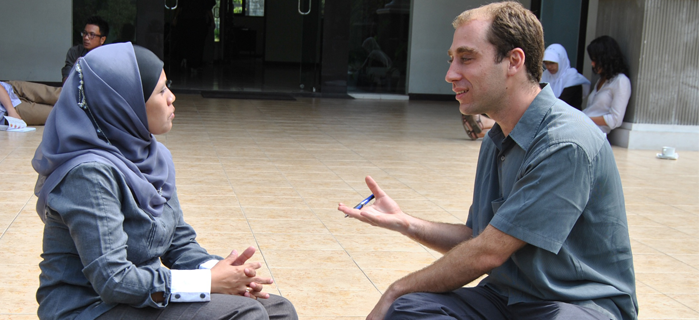Today, 40 million American jobs are tied to international trade, and 95 percent of the world's consumers live outside of American borders. In 2014 alone, half-a-million job postings in the US called for multilingual candidates.
Speaking another language enables unencumbered movement and exchange in an interconnected economy. Yet, only seven percent of today's college students are enrolled in a language course.
Of those enrolled, Spanish and French are the most common languages studied. The world's most spoken language is Chinese (over one billion speakers speak Mandarin and other dialects of Chinese). Is the US higher education system adequately preparing the next generation to succeed in a global economy?
In a study of 800 American business leaders, 80 percent believed their business would improve through staff with international experience. In August 2016, a quick search on the job site Indeed.com revealed just over 15,000 postings in Washington, DC that required or sought candidates with foreign language skills.
On the state level, Northern Illinois University surveyed businesses to analyze Illinois' economic competitiveness. In the study, 49 percent of employers in Illinois reported that, by 2020, their hiring practices would favor college graduates who speak more than one language. Spanish and Mandarin were cited as the most in-demand languages.
Ongoing research demonstrates that studying abroad enhances participants' language gains tremendously. There is also mounting evidence that building foreign language skills can improve critical and creative thinking, leadership, tolerance of ambiguity, and collaboration.
It's time for more American colleges and universities to prepare students for a global workforce. Language learning is the place to start.

